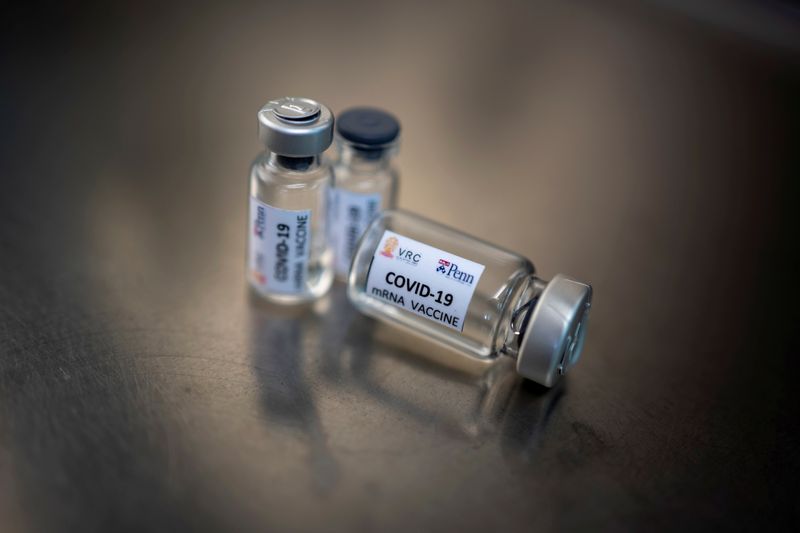(Reuters) – Some countries have halted altogether or are giving only one dose of COVID shots based on so-called mRNA technology to teens following reports of possible rare cardiovascular side effects.
Europe’s drug regulator said in July it had found a possible link between a very rare inflammatory heart condition and COVID-19 vaccines from Pfizer/BioNTech and Moderna.
However, the benefits of mRNA shots in preventing COVID-19 continue to outweigh the risks, European and U.S. regulators and the World Health Organization have said.
Here are some of the steps some countries are taking:
CANADA
The Public Health Agency of Canada said data suggested that reported cases of rare heart inflammation were higher after Moderna’s COVID-19 vaccine compared with the Pfizer/BioNTech shots.
DENMARK
The Danish Health Agency said on Friday that it was continuing to offer Moderna’s COVID-19 vaccine to under-18s, and that a statement on Wednesday suggesting a suspension had in fact been a miscommunication.
FINLAND
Finland paused the use of Moderna’s vaccines for younger people and instead would give Pfizer’s vaccine to men born in 1991 and later. It offers shots to those aged 12 and over.
HONG KONG
A panel of health experts advising the Hong Kong government has recommended in September children aged 12-17 should get only one dose of BioNTech’s COVID-19 vaccine after reports of heart inflammation as a side effect.
NORWAY
Norway will hold off giving children aged 12-15 a second dose of a vaccine against COVID-19 until it has gathered more research. On Oct. 22 the health ministry said there was no urgency given that children have a low risk of falling seriously ill from COVID-19.
On Sep. 2 Norway decided on giving one dose of Pfizer/BioNTech vaccine to children aged 12-15.
SWEDEN
Sweden has extended the pause of Moderna COVID-19 vaccine beyond the original Dec. 1 deadline for people aged 30 and younger due to rare heart-related side-effects, the public health agency said on Oct. 21.
The agency said earlier in October that data pointed to an increase of myocarditis and pericarditis among youths and young adults vaccinated with Moderna vaccine Spikevax, and paused the use for all born 1991 or later.
SOUTH AFRICA
South Africa will start vaccinating children between 12 and 17 using the Pfizer vaccine, the health minister said, as the country looks to ratchet up inoculations ahead of final year examinations.
On the advice of its vaccine advisory committee the government would only give teenagers a single shot of Pfizer’s normal two-shot regime due to concerns that it may affect the heart.
UNITED KINGDOM
Britain has been offering all 12-15-year-olds a first a shot of the Pfizer/BioNTech vaccine. Second doses would not be offered to the age group until at least spring when there may be more data from around the world.
(Compiled by Antonis Triantafyllou; Editing by Joanna Jonczyk-Gwizdala and Tomasz Janowski)




















